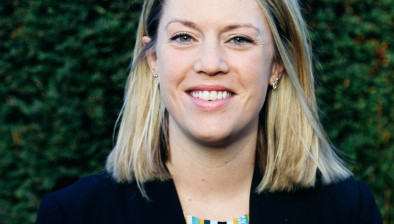RBS: Hiring activity continues to drop in Scotland throughout July
Hiring activity in Scotland continued to decline substantially in July, although the labour market downturn softened slightly compared to previous months this year, according to the latest Royal Bank of Scotland Labour Market Report.

The pace of the downturn softened further throughout July, with permanent appointments and temporary billings falling at the slowest rates since February and January, respectively.
Latest survey data highlighted an eighth successive monthly reduction in temp billings across Scotland. The latest decline was the softest since January, albeit still sharp overall. Although there were still frequent mentions of delaying hiring decisions, some respondents noted that the easing of restrictions had led firms to take on additional short-term staff.
The fall in temp billings also eased at the UK level in July, with the overall reduction softer than that seen in Scotland.
Recruiters in Scotland signalled a back-to-back monthly increase in the supply of permanent staff during July, with the rate of expansion remaining among the quickest on record, despite slowing from June. Panellists frequently associated the uptick to redundancies as a result of the coronavirus pandemic.
July data highlighted a further rise in the availability of temporary candidates in Scotland, extending the current sequence of increase to four months. According to respondents, further lay-offs and company closures resulted in a greater number of job seekers. Moreover, the rate of expansion was the quickest for over 11 years and marked, with growth in Scotland also outpacing that seen at the UK level.
Meanwhile, there was further downward pressure on pay, as the number of available candidates rose again amid ongoing job cuts.
Permanent starting salaries fell rapidly during July, despite the rate of decline easing since June, while the reduction in temp wages was among the quickest on record.
The seasonally adjusted Permanent Placements Index posted well below the crucial 50.0 neutral mark in July to signal a further marked drop in permanent staff appointments in Scotland. That said, the index made up a further 12.6 points from June and indicated the softest reduction since February. Some panellists reported that looser COVID-19 related restrictions had led more companies to reopen and resume hiring, but that the pandemic continued to suppress overall recruitment
A similar trend was observed at the UK level in July, where the decline in permanent placements also eased. The fall in Scotland continued to outpace that at the national level, however.
A fourth successive monthly fall in salaries awarded to permanent new joiners was recorded in July as a greater number of available candidates continued to put downwards pressure on pay. The latest decline in starting salaries was the softest for three months, but still marked.
Recruitment consultancies across Scotland signalled a reduction in average hourly wage rates for short-term staff during July, extending the current sequence of decline to four months. Albeit still rapid, the rate of wage deflation was the softest since April.
The seasonally adjusted Permanent Vacancies Index registered well below the neutral 50.0 mark in July and signalled a fifth successive monthly reduction in demand for permanent staff. The latest drop in vacancies was the softest since March, but marked nonetheless.
Scottish recruiters highlighted a fifth successive monthly reduction in temporary vacancies during July. That said, the rate of contraction softened further and was the slowest since March. Nonetheless, the reduction in Scotland again outpaced that recorded at the UK level.
Sebastian Burnside, chief economist at RBS, commented: “Latest survey data continue to highlight the immensely challenging conditions encompassing the Scottish labour market at present. Permanent appointments and temporary billings declined further, with the reductions remaining substantial despite easing.
“Although there were frequent mentions that looser restrictions around the COVID-19 pandemic had allowed businesses to reopen, substantial uncertainty and excess capacity is stifling firms’ appetite to take on additional staff. Where they do, feisty competition among candidates for roles is driving pay down further, as both permanent salaries and short-term wages declined markedly again.
“Overall, data are moving in the right direction, with signs that the labour market is edging towards stabilisation, but it is likely that it will take more time before any meaningful recovery takes place.”
- Read all of our articles relating to COVID-19 here.










